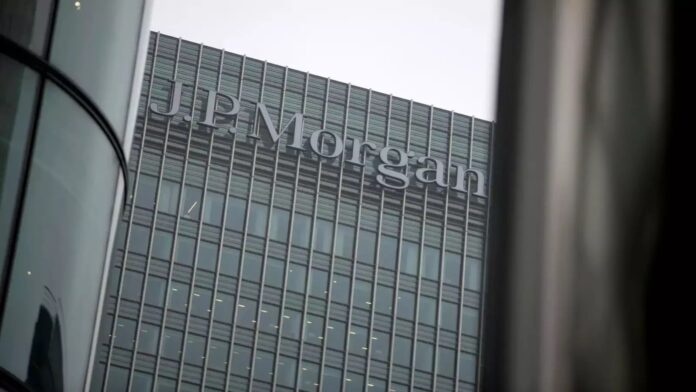The investment bank’s report highlights the group’s ability to leverage internal cash flows to sustain growth and mitigate credit stress as a key factor behind its confidence.
Adani Bonds Ratings Overview
JP Morgan assigned an ‘overweight’ rating to three bonds issued by Adani Ports & SEZ and one by Adani Electricity Mumbai Ltd, a subsidiary of Adani Energy Solutions Ltd. This rating suggests that these bonds are expected to outperform in the market and fall under JP Morgan’s “buy” category.
For the remaining bonds:
- A neutral stance was taken on five bonds, indicating a “hold” recommendation.
- An underweight rating, which is a “sell” recommendation, was assigned to one bond issued by Adani Green Energy Ltd.
The overweight ratings reflect the group’s robust cash flow generation capabilities, particularly in the case of Adani Ports, which JP Morgan believes reduces the likelihood of credit stress.
Risks and Challenges Highlighted
Key Risks Identified
JP Morgan’s report outlines several risks that could influence the performance of Adani bonds:
- Regulatory Issues: The ongoing investigations by the US SEC and DoJ into allegations of bribery against Gautam Adani and his key aides remain a critical factor. The resolution of these charges could significantly impact market sentiment.
- Debt Refinancing: The successful refinancing of upcoming bonds and credit facilities will be crucial, particularly for Adani Green Energy Ltd, which faces a sizeable $1.1 billion loan maturity in March 2025.
- Related-Party Transactions: Any financial dealings within the group and promoter entities that raise governance concerns could adversely affect bond ratings.
- Debt-Funded Expansion: Aggressive mergers and acquisitions or capex-driven growth funded by debt could weaken the group’s credit metrics.
Market Reaction to Regulatory Actions
The report noted that following the initial volatility caused by regulatory actions, the spreads on Adani Group’s bonds widened by 100-200 basis points. Bonds with shorter tenors experienced greater volatility due to higher dollar prices, reflecting heightened investor caution.
Upside and Downside Scenarios
Upside Risks
JP Morgan outlined key factors that could lead to better-than-anticipated performance for Adani bonds:
- A swift resolution of the US SEC and DoJ investigations.
- Successful refinancing of upcoming debt obligations.
- Improved operating performance across the group’s entities.
Downside Risks
Conversely, adverse outcomes from the regulatory investigations, governance concerns stemming from related-party transactions, and debt-driven expansion could negatively impact bond performance. These risks particularly affect the neutral and overweight ratings assigned to Adani bonds.
Focus on Cash Flow Strength
A key aspect of JP Morgan’s analysis is the emphasis on the group’s ability to generate solid internal cash flows. For Adani Ports, which received an overweight rating for three of its bonds, the intrinsic equity value of the business, supported by strong cash flows, is seen as a mitigating factor for credit stress.
“Our preference is for cash flows over security,” noted Love Sharma of JP Morgan in the report. This approach underscores the bank’s confidence in Adani Ports’ operational stability and its capacity to scale and grow without excessive reliance on external financing.
While some bonds are not secured by physical assets, the report highlights that robust cash flow generation makes up for the lack of traditional security. Additionally, even in the case of secured bonds, JP Morgan noted that certain covenants allow for decent cash distribution, further alleviating concerns about trapped liquidity.
Upcoming Debt Obligations and Maturities
JP Morgan’s report detailed near-term maturities for the Adani Group’s offshore debt, which spans several entities:
- Adani Ports
- Adani Green Energy
- Adani Airport Holdings (wholly owned by Adani Enterprises)
- Ambuja Cement Bidco
- Adani Energy Solutions

The group’s ability to meet these obligations through effective refinancing strategies will be critical in maintaining investor confidence and mitigating credit stress.
Adani Group’s Response to Allegations
Amid ongoing scrutiny, the Adani Group has strongly denied the bribery allegations brought against it by US authorities, labeling them as baseless. The group’s consistent stance has been to refute claims of financial or operational impropriety, maintaining that its business practices comply with regulatory standards.
JP Morgan’s Market Analysis
Despite the challenges, JP Morgan’s overall outlook for Adani bonds indicates cautious optimism. The bank acknowledged that the group’s bonds have seen price adjustments and spread widening due to regulatory pressures but noted that the markets seem to have stabilized for now.
Banking on the group’s strong cash flow capabilities and scalable business models, JP Morgan expressed confidence in the medium-term performance of bonds issued by key entities like Adani Ports and Adani Electricity Mumbai Ltd. However, the cautious approach toward Adani Green Energy Ltd reflects the uncertainty surrounding its upcoming debt obligations.
Conclusion
JP Morgan’s ratings on Adani bonds reflect a nuanced perspective, balancing the group’s strong cash flow potential and operational scalability against the backdrop of regulatory challenges and debt obligations. The overweight ratings for Adani Ports and Adani Electricity highlight confidence in these entities’ financial health and intrinsic value.
However, the cautious stance on other bonds underscores the need for the group to address key risks, including regulatory investigations and governance concerns. For investors, the resolution of these challenges will play a pivotal role in determining the trajectory of Adani bonds in the coming months.



